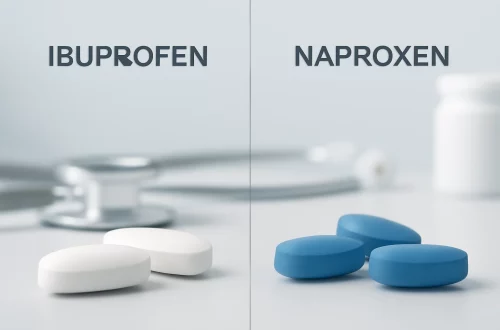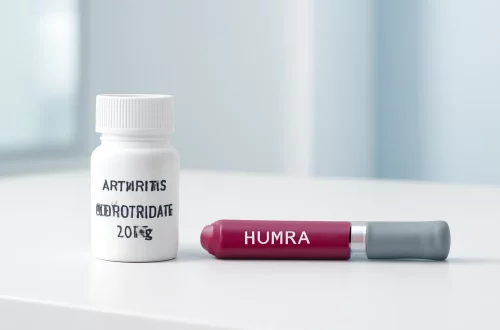
The Best Pellets for Guinea Pigs: Nutritional Guide and Recommendations
Guinea pigs are beloved pets known for their gentle nature and social behavior. These small rodents require a balanced diet to thrive, and one of the essential components of their nutrition is pellets. Unlike wild guinea pigs that forage for various plants, domesticated ones depend heavily on commercial food sources. Selecting the right pellets ensures that your furry friends receive the necessary nutrients for their growth, health, and overall well-being.
The market is saturated with various brands and types of guinea pig pellets, making the decision daunting for many pet owners. Factors such as ingredient quality, nutritional content, and the presence of additives can significantly affect your pet’s health. Additionally, understanding the specific dietary needs of guinea pigs, including their requirement for high fiber and limited sugars, is crucial in making an informed choice.
Moreover, the right pellets can help prevent common health issues associated with improper diets, such as obesity and dental problems. In this guide, we will explore the nutritional aspects of guinea pig pellets, highlight recommended brands, and offer tips on how to introduce new foods into your pet’s diet safely. Armed with this information, you will be better equipped to ensure your guinea pig leads a happy, healthy life.
Understanding the Nutritional Needs of Guinea Pigs
Guinea pigs have unique dietary needs that differ significantly from other small pets. As herbivores, they primarily consume a diet rich in fiber, which is vital for their digestive health. The primary ingredient in a guinea pig’s diet should be hay, but high-quality pellets also play a crucial role. These pellets are formulated to provide a balanced mix of vitamins, minerals, and proteins required for their daily functioning.
One of the most important nutrients guinea pigs need is Vitamin C. Unlike some other animals, guinea pigs cannot synthesize this vitamin on their own, making it essential for them to get it from their diet. A deficiency in Vitamin C can lead to scurvy, a serious condition characterized by lethargy, joint pain, and even death. Therefore, it’s critical to choose pellets that are fortified with this vital nutrient.
In addition to Vitamin C, guinea pigs require a diet low in fat and sugar. Pellets with excessive sugar levels can lead to obesity and other metabolic issues. It’s crucial to read the ingredient labels to avoid products that contain sweeteners or high-calorie fillers. The ideal pellets should be high in fiber, ideally containing at least 18% crude fiber, which helps maintain a healthy digestive system.
Another key aspect is the protein content. Adult guinea pigs generally require around 12-18% protein in their diet, while young or pregnant guinea pigs may need slightly more. However, too much protein can lead to kidney problems, so it’s essential to strike the right balance.
When selecting pellets, look for those made from high-quality ingredients without artificial colors or preservatives. Natural ingredients ensure that your guinea pig receives the best nutrition possible.
Top Brands of Guinea Pig Pellets
With numerous brands available on the market, choosing the right pellets can be overwhelming. However, certain brands have garnered positive reviews from pet owners and veterinarians alike. One highly recommended brand is Oxbow. Their Essential Adult Guinea Pig Food is known for its high fiber content and lack of artificial additives. It is fortified with Vitamin C, ensuring that your guinea pig’s nutritional needs are met.
Another excellent option is Kaytee’s Timothy Hay-Based Pellets. These pellets are made with high-quality timothy hay, providing the necessary fiber for digestive health. They are also fortified with essential vitamins and minerals, making them a well-rounded choice for pet owners.
Small Pet Select is another brand that stands out for its commitment to quality. Their pellets are made from 100% timothy hay and are free from fillers and artificial ingredients. This brand prioritizes the health of your guinea pig and offers a product that aligns with their dietary requirements.
For those looking for an organic option, Manna Pro’s Guinea Pig Food is worth considering. This brand focuses on providing natural ingredients, which can be beneficial for guinea pigs with sensitive stomachs. Their pellets contain no artificial colors or flavors and are fortified with necessary vitamins.
When selecting a brand, it’s essential to consider your guinea pig’s individual needs. Some pets may have specific sensitivities, so it’s wise to consult with a veterinarian if you have any doubts. Always introduce new pellets gradually to avoid digestive upset.
How to Transition to New Pellets
Transitioning your guinea pig to new pellets should be done gradually to prevent any digestive issues. Sudden changes in diet can lead to gastrointestinal upset, which can be harmful to your pet. The goal is to introduce the new pellets while slowly decreasing the amount of the old pellets.
Start by mixing a small amount of the new pellets with the old ones. A good ratio to begin with is 75% of the old pellets and 25% of the new ones. Monitor your guinea pig’s reaction to the change. If they accept the mixture well, gradually increase the proportion of the new pellets over the course of about a week.
During this transition period, keep an eye on your guinea pig’s behavior and health. Look for any signs of digestive upset, such as changes in stool consistency, reduced appetite, or lethargy. If any of these symptoms occur, it may be necessary to slow down the transition or revert to the original pellets and consult a veterinarian for further guidance.
Make sure to provide plenty of hay and fresh vegetables alongside the pellets throughout the transition. This will help maintain their fiber intake and promote healthy digestion. It’s also a good idea to keep fresh water available at all times, as hydration is essential for your guinea pig’s health.
Lastly, keep in mind that guinea pigs are creatures of habit, and they may be hesitant to accept new foods. Patience is key during this process. If your guinea pig shows reluctance, try offering the new pellets in a different location or mixing them with their favorite treats to encourage acceptance.
Common Misconceptions About Guinea Pig Diets
There are several misconceptions surrounding guinea pig diets that can lead to improper feeding practices. One common myth is that guinea pigs can thrive solely on pellets. While pellets are an important part of their diet, they should never be the only food source. The bulk of their diet should consist of high-quality hay, which is essential for their digestive health.
Another misconception is that all hay is created equal. Many pet owners may choose low-quality hay that lacks the necessary nutrients. It’s crucial to provide fresh timothy hay or other grass hays, as these are rich in fiber and help prevent dental problems.
Additionally, some owners may believe that fruits and vegetables can be offered in unlimited quantities. While these foods are beneficial, they should only be given in moderation due to their sugar content. Too much fruit can lead to obesity and other health issues, so it’s vital to stick to a balanced diet.
Lastly, many people think that guinea pigs can eat rabbit pellets. This is a significant mistake, as rabbit pellets are formulated differently and lack the necessary nutrients for guinea pigs. Always choose pellets specifically designed for guinea pigs to ensure they receive the proper nutrition.
Educating yourself about the dietary needs of guinea pigs will help you make informed decisions that contribute to their health and happiness. Your guinea pig relies on you for their well-being, so taking the time to understand their nutritional requirements is essential.
**Disclaimer:** This article is for informational purposes only and does not constitute medical advice. For any health-related concerns regarding your guinea pig, please consult a qualified veterinarian.




